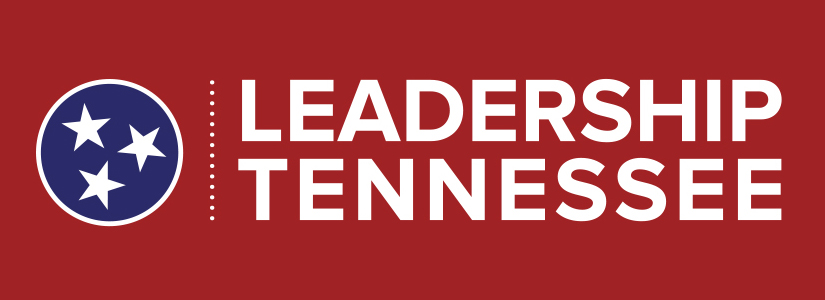By Kim Chaudoin | 615.966.6494
Lipscomb University’s College of Leadership & Public Service today announced the 2017-18 class for Leadership Tennessee, a leadership education program designed to cultivate a network of business, nonprofit, education and government leaders who are committed to addressing the state’s challenges and opportunities.
Leadership Tennessee officials are also celebrating a program milestone — its fifth year of impacting the state. The program was launched in February 2013.
“In my view, Leadership Tennessee has set the national standard in public service leadership development,” said Steve Joiner, dean of the College of Leadership & Public Service. “Since the program’s inception, 135 highly influential leaders have completed the program and they are shaping the future of Tennessee, in no small part because of their experiences and the networking opportunities across regions and sectors. Leadership Tennessee models the mission of the College of Leadership & Public Service through ‘theory-to-practice’ education and development.”
The 2017-18 class includes 42 business, government, education and nonprofit leaders from across Tennessee.
“When Lipscomb University launched Leadership Tennessee in 2013, the need for a space for collaborative conversation was certainly understood. What wasn't completely understood was how important this network of connected and better-informed leaders would be to the success of Tennessee. Over the past four years we have celebrated the diversity of our state and provided a common understanding of how each geographic region and professional sector can work together to support the success of the entire state. With the announcement of Class V, we look forward to continued conversations around critical issues of importance and meeting challenges with an eye towards what makes each region special, but also how we can come together for the common good,” said Cathy Cate, executive director of Leadership Tennessee.
Leadership Tennessee is a 10-month program that provides collaborative learning and dialogue spanning the state and opportunities to affect change. In 2015, Leadership Tennessee received a $750,000 grant from the Bill & Melinda Gates Foundation to expand the program’s offerings, scope and impact on Tennessee.
Members of the 2017-18 Leadership Tennessee class
Brownsville: William Rawls, mayor, City of Brownsville
Chattanooga: Stephen Culp, CEO/General Partner, Delegator.com, PriceWaiter.com, Chattanooga Renaissance Fund; Wade Hinton, city attorney/chief legal officer, City of Chattanooga; Andrew Kean, partner/co-founder, Alderman Holdings; Tim Kelly, president, Kelly Auto Group; Elaine Swafford, executive director, Chattanooga Girls Leadership Academy; Roy Vaughn, senior vice president/chief communications officer, BlueCross BlueShield of Tennessee; Scott Neal Wilson, head of communications, Volkswagen Group of America, Chattanooga Operations
Franklin: Greg Allen, president, Midsouth; Cigna
Kingsport: Miles Burdine, president and CEO, Kingsport Chamber of Commerce; Jessica Stollings, president, ReGenerations; Laura Woods, senior attorney, Eastman
Knoxville: Dr. Keith D. Gray, associate professor and chief of surgical oncology, University of Tennessee Medical Center – Knoxville; Bill Lyons, deputy to the mayor, chief policy officer; City of Knoxville; Phyllis Young Nichols, president and CEO, Knoxville Area Urban League; David Rausch, chief of police, Knoxville Police Department; Melanie Wilson, Dean & Lindsay Young Distinguished Professor of Law; University of Tennessee College of Law
Lebanon: Dr. Paul C. Stumb, president, Cumberland University
Memphis: Raumesh Akbari, state representative, Tennessee House of Representatives; J.W. Gibson, II, CEO/Chairman, Gibson Companies Inc.; Emily Greer, chief administrative officer, ALSAC/St. Jude Children’s Research Hospital; Jim Strickland, mayor, City of Memphis; Ted Townsend, deputy commissioner & COO, Tennessee Department of Economic and Community Development; Kevin Woods, executive director; Workforce Investment Network, City of Memphis
Nashville: Danielle Barnes, commissioner, Tennessee Department of Human Services; Jeff Bivins, chief justice, Tennessee Supreme Court; Lyndsay Botts, deputy commissioner/chief of staff, Tennessee Department of Transportation; Maya Bugg, CEO, Tennessee Charter Center; Dr. Alex Jahangir, medical director; Vanderbilt Center for Trauma, Burn, and Emergency Surgery; Vanderbilt University Medical Center; Mike Krause, executive director, Tennessee Higher Education Commission; Kenyatta Lovett, executive director, Complete Tennessee; Rob McCabe, chairman, Pinnacle Financial Partners; Janet Miller, CEO/market leader, Colliers International; Rob Mortensen, principal/founder, Kettle Hill Solutions; Gini Pupo-Walker, senior director of education policy and strategic growth, Conexión Américas; Lisa Quigley, chief of staff; Representative Jim Cooper, US House of Representatives; Tara Scarlett, president/CEO, Scarlett Family Foundation; Stephen Susano, COO and principal, Stones River Group; Stephanie Teatro, co-executive director, Tennessee Immigrant and Refugee Rights Coalition; Dr. Phil Wenk, president and CEO, Delta Dental of Tennessee
New Johnsonville: Greg Martz, plant manager, Chemours
Tazewell: Robert Barger, president and CEO, First Century Bank
Past classes have focused on key issues impacting the state including education, economic development and health and wellness. During the course of the program, each class participates in learning and conversation designed to give them a greater understanding of the complex issues affecting the success of the state. The 2017-18 Leadership Tennessee class will commence with a retreat in August.
Program participants said they have gained new perspective through Leadership Tennessee
“Our state is wide geographically and culturally diverse. If you really want to understand its challenges and opportunities, you have to spend time with Tennesseans in each major area, including rural and urban,” said Theresa Carl, president, Governor's Books From Birth Foundation based in Nashville and Class II member. “Leadership Tennessee affords the unique opportunity to make important connections statewide and to foster meaningful conversations that can lead to long-lasting impacts.
“There’s really no other program quite like Leadership Tennessee – from the staff to the members and those we have the opportunity to know during the year. As classes are added, the network of passionate Tennesseans who can influence greatness for our state will deepen and broaden. I’m grateful to have had the opportunity to participate.”
Class III member David Golden, senior vice president, chief legal and sustainability officer and corporate secretary for Eastman and Class V selection committee chair, said Leadership Tennessee helped increase his awareness of issues in other parts of the state.
“There is a great deal of distance between Mountain City and Memphis,” said Golden, of Kingsport. “Leadership Tennessee has made the state ‘smaller’ and helped me understand at a granular level the challenges and opportunities across the state. Leadership Tennessee has been a catalyst to drive understanding and propagate creative approaches to problem solving. It brings diverse sectors together for the common good.
“Leadership Tennessee drives inclusion, partnership, collaboration, and innovative thinking,” he continued. “It takes people who are working hard in their various spheres and brings them together in a powerful way,” he continued. “I treasure the time I spent with my Leadership Tennessee classmates. There is tremendous power in shared purpose. There are remarkable people doing good across the state and Leadership Tennessee affords an opportunity to witness the work and join it in a very productive way.”
The program strengthens the state by bringing its leaders together, participants say.
“One of the biggest lessons this program teaches is that no matter what part of the state we live in, we all face the same challenges — workforce development, health care and education among others. Leadership Tennessee provides leaders throughout the state opportunities to meet each other, realize that we have the same issues and find solutions together,” said Bruce Hartmann, president of the Chattanooga Times-Free Press and Class IV member. “We live in a great state, and through Leadership Tennessee bringing this state’s leaders together to identify problems and opportunities we can accomplish a great deal and it will make Tennessee stronger.”
“Leadership Tennessee connected me with numerous leaders from all levels of government, nonprofit organizations, educational institutions and businesses that helped me in my pursuit to serve veterans with an expanded focus,” said Many-Bears Grinder, commissioner of the Tennessee Department of Veterans Services and Class I member. “Doors have been opened to break down barriers for veterans seeking higher education, career and business opportunities.”
“Visiting rural and metropolitan communities all across the state gave me insights to challenges and innovations, which I then applied in working with county mayors, veterans and in developing new partners to support our most deserving population,” continued Grinders, who lives in Nashville. “Sharing ideas, contacts and resources are helping to grow a better Tennessee – one session and one class at a time. Continuing to engage through the alumni program expands my network and allows me to contribute even further.”
For more information about Leadership Tennessee visit www.leadershiptennessee.org or contact Cate at 615.966.5180 cathy.cate@leadershiptennessee.org.











